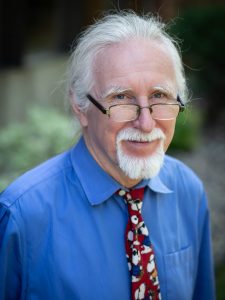 By Bob Hulteen
By Bob Hulteen
So, I’m probably not the best person to write this blog. After all, in the early 1980s I wrote editorials against having the Rev. Dr. Martin Luther King, Jr.’s birthday as a federal holiday.
Wait, you might be thinking: You were against MLK Day? Well, sort of.
King was definitely a hero-from-afar as I was growing up in Western North Dakota. My parents were engaged in civil rights work, and I was inspired by King’s oratory, sparking my imagination that a more-just world was possible. After a move to Washington, D.C., I had the chance to work with many of King’s lieutenants (Rev. Fred Shuttleworth, Rev. C.T. Vivian, Lawrence Guyot, Diane Nash, Rev. James Lawson, James Forman, James Farmer, James Orange [lots of Jameses], Rev. Vincent Harding, Dorothy Cotton, Rev. Joseph Lowry). I found that same inspiration and spark in the faith, dedication, and ministry of this creative generation of prescient leaders.
“I had never heard of Juneteenth until I moved to D.C., a Black majority city.”
If the commitment of King and this circle of leaders was so deeply impactful on me, why would I oppose a day to honor the man who was the face of the 1960s civil rights movement? Well, I was actually more against using his birthday as the day of commemoration, because I felt like it could be more easily domesticated than recognizing the day of his assassination. (To be fair, this realization was not my own; some civil rights activists, including a couple named above, made this argument to me.) This conviction wasn’t intended to be morbid, but even recognizing the need for reasons for joy, there was concern the wrong lesson would be remembered.
Unfortunately, to a great degree, I think the holiday has lost its teeth. Instead of using MLK Day as an opportunity to address systemic and structural issues, to take on the principalities and powers, it has become a day to promote volunteerism. That’s not a bad thing, but King’s deep understanding of both America’s possibility and its shortcomings are no longer the focus of the day’s remembrance.
(Of course, one could have a parallel discussion about how the life and ministry of Jesus has been domesticated as well. The “popularity” of Christmas over Good Friday might be instructive, … even as we declare that it was Jesus’ death and resurrection is the primary gamechanger.)
SO, THE THIRD WEEK of June has become another opportunity for white America to pause and reflect on a different day of commemoration. Does this mean we will more deeply engage in the work of structural change, anti-racist deconstruction, and opposition to white supremacist activities – those intentional and conscious, as well as those unacknowledged and subtle?
Juneteenth is a “new” federal holiday, even as we last weekend celebrated its 157th anniversary. I know that I had never heard of Juneteenth until I moved to D.C., a Black majority city. Most of us hadn’t, I suspect, so we are learning new things about the combination of lament and joy through the acknowledgement of real history – history that has been too often erased.
Thus, what irony it is that, as our awareness of historical events becomes more holistic, the bogeyman of “critical race theory” becomes the fixation of groups with a political agenda to deny some major parts – a through line, actually – of American history. Our own fragility as white folks means we are too often unable to be confronted by our past; we either say, “well, that wasn’t me,” or “it wasn’t that bad; some people even liked it.”
“If the commitment of King and this circle of leaders was so deeply impactful on me, why would I oppose a day to honor the man who was the face of the 1960s civil rights movement?”
The anniversary of the martyrdom of the Mother Emanuel Nine now falls on the same weekend as the Juneteenth celebration. As Lutherans, we have become very aware of the story of the Mother Emanuel Nine, nine members of an African Methodist Episcopal Bible study who welcomed a young, white, ELCA-confirmed man into their midst, only to be killed by him. Two of the pastors of this congregation, who were shot to death, were students of an ELCA seminary.
Before we continue, let’s take just a moment to say their names:
Rev. Sharonda Coleman-Singleton
Mrs. Cynthia Graham Hurd
Mrs Susie J. Jackson
Mrs. Ethel Lee Lance
Rev. DePayne Middleton-Doctor
Rev. Clementa Pinckney
Tywanza Kibwe Diop Sanders
Rev. Daniel Lee Simmons, Sr.
Mrs. Myra Singleton Quarles Thompson
The challenge for us as Lutherans is to tell the reality of this story – that someone could be confirmed in our church and still could shoot siblings of faith to death – and not “whitewash” it. These murders are abhorrent; and, we have a tie to this story. It is in our structures, in our policies, in our beliefs, in ourselves. We can choose to stay silent or to make change, to be comforted or to embrace the discomfort.
The supporters of eliminating “critical race theory” would say that learning this history might make some of us increasingly uncomfortable, so we shouldn’t do it. They might argue that we don’t need to know about the Mother Emanuel Nine or the young man who killed them. They might contend that we don’t need to know about the intentionality of slaveowners moving to Texas to avoid the imposition of Reconstruction, leading to the June 19, 1865, announcement of emancipation. They might make the case that we don’t need to know that MLK called for acts of civil disobedience more often than warmly calling us to become volunteers.
Again, I’m not sure I’m the best person to write this blog. But, I am sure that all gospel-believing folks are being asked to reflect on where we are on this path, … and how we will chart a new course while continuing to move forward.
